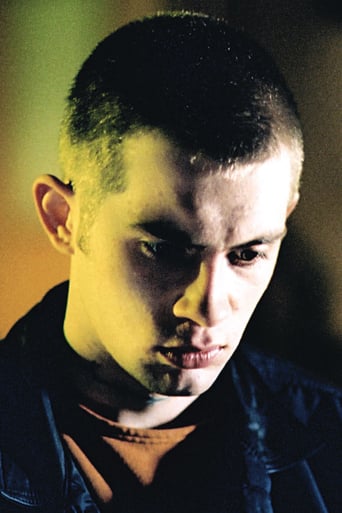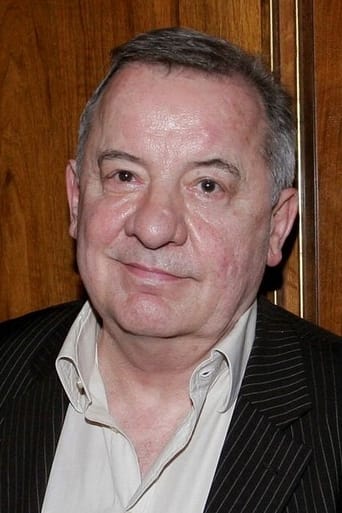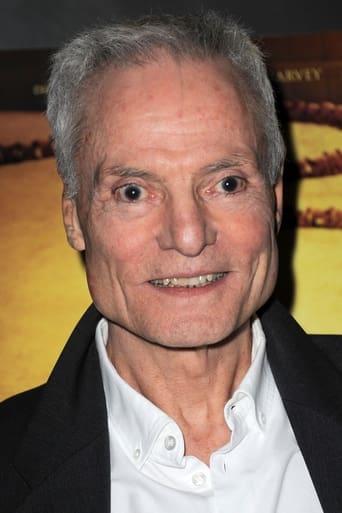ReaderKenka
Let's be realistic.
Beystiman
It's fun, it's light, [but] it has a hard time when its tries to get heavy.
AshUnow
This is a small, humorous movie in some ways, but it has a huge heart. What a nice experience.
Taha Avalos
The best films of this genre always show a path and provide a takeaway for being a better person.
Horst in Translation (filmreviews@web.de)
"Führer Ex" is certainly as baity as it gets and I guess they had success with that as this fairly mediocre movie is a lot more known than it really should be. Director here is Winfried Bonengel and he also adapted Ingo Hasselbach's autobiographic work for the screen. Still I think there is a reason why nobody from the cast really (with one exception, I come to that later) is in famous fames these days anymore and same also goes for Bonengel who went on to direct terrible television series after this project and none of the works he made before or after this one comes close to this one in terms of popularity.The movie runs for 100 minutes and tells us about the lives of 2 GDR citizens who are sick of their country and try to flee. However, instead of becoming respectable FRG citizens, they switch to the other side and end up on the far right. Most of the movie is about depicting what happens when they were in jail. Easily the best thing about this film is Dieter Laser, he is the one I was referring to previously as he is still well-known today. He plays a prison inmate who killed his wife and talks all about self-defense, but it becomes so obvious that this is not what happened. That scene, as brutal as it was, was also pretty hilarious because of Laser's insane line delivery. Sadly, the rest of the film is almost in its entirety forgettable and there are very few memorable moments. Even the ending does not feel authentic, but just dramatic for the sake of it. I do not recommend this film.
gradyharp
Führer Ex is a challenging, harsh, and intensely involving tale of the course of friendship of two young lads living in the 'prison' of Communist East Germany in 1986. Based on fact (Ingo Hasselbach's book 'Die Abrechnng' adapted for the screen by Douglas Graham and director Winfried Bonengel), this story relates the changes that occur in the close friendship of two boys torn by the confinement of the East German Communists vs the Western freedom of West Germany and the countries not under Communist control. It informs us about that transition with the fall of the Berlin wall and the subsequent adjustment to the new form of life East Germans found beyond the crumbled wall.Heiko (Christian Blümel) is fair-haired, virginal, nice guy who longs for adventure (and more) with his idolized friend Tommy (Aaron Hildebrand), an edgy guy unafraid to get into a bit of trouble (Tommy is arrested for a minor crime and is released from jail shaved and tattooed). The two dream of escaping their rigid lives and fleeing to Australia. Tommy talks Heiko into running the risk of actual escape and together they break through the wires and walls that confine them but are apprehended in their attempt and sentenced to prison in a cruel Communist prison where they are separated, Tommy joining a 'neo-nazi' group and Heiko falling under the 'protection' of a fellow prisoner who eventually rapes him. The two finally are able to talk and plan a mutual escape, hopefully placing themselves in boxes to be transported to freedom. Tommy succeeds; Heiko doesn't and remains in prison.Flash forward to 1989 and the Berlin wall is down. Tommy is living a comfortable life in the new Berlin and encounters Heiko in a true Neo-Nazi meeting that Heiko is leading. The tables have turned - Heiko is the miscreant and Tommy is the good guy. Convinced that Tommy is a traitor to the ideals of Heiko's political interests, Heiko surfaces all of the hate that brewed in prison and is focused on unjust governments. An event occurs that alters their friendship and Heiko is forced to see that varying political climes and convictions pale in the value of treasured friends.The film is well paced and the acting is excellent. There are gaps in the script storyline that result in some confusion for the viewer, but the overall impact of the 'biopic' nature of the movie is powerful and deserves attention. It is particularly fitting that this film comes out of Germany, as though it may be a purging of sorts over the initial division of East vs West Berlin. And forgetting about the political aspects of the story, this is a powerful document on the importance of commitment to long-term friends. Recommended. Grady Harp
zeilmann.a
***SPOILERS*** ***SPOILERS*** Führer Ex is an impressive work about the rise of Neonazism in Eastern Germany and a precise portrait of a society where this could happen. Its a possible eye-opener especially for a younger audience, realisticly depicting violence in prison and by neonazi-groups against leftist "Rats" and foreigners. It strongly draws its realism from the real life of co-writer Ingo Hasselbach, who in the early 90s was head of an notorious Neonazi-faction that spread fear and violence in parts of East-Berlin. Later and with the help of director Winfried Bonengel he found his way out and cofounded the EXIT-program for former extremists.Mainly focusing on the friendship of two buddys Heiko and Tommy growing up in East-Berlin in the late 1980s, it shows two punkish rebels with dreams about going to capitalist Australia, "because there you are completely free and can do what you like". Maybe this illusion just comes from seeing all the same faces everywhere, or going to the same bar everynight. At first it's just minor offences like peeing on the "official" GDR-newspaper, then burning the flag, in the end they try to flee and climb over the wall. But they are caught and put into prison. This is where the film finds its center: Faschist gangs and Skinheads are ruling the prisons in East-Germany even under Communist rule. The regime breeds its enemies while it officially preaches its anti-faschist stance regularly as being the fundation and reason for the state. But in prison being nazi is the most extreme way to protest against the ruling ideology of socialist brotherhood.The two buddies at first choose different ways to survive the brutality in prison: Tommy finds refuge by joining the right-wing group on the block while Heiko tries to walk alone - until he is raped in the bathroom by another inmate. He than joins hands with Faschist-leader Friedhelm who feeds his followers with old-time Nazi-ideology. Tommy is able to flee to the West. But when he returns to Berlin a couple of months later after the fall of the wall he finds his friend hardend and as being the leader of the pack, holding speaches, wearing brown uniform-shirts and setting fire to a food-stall because the owner is Turkish. After the death of young girl in a street fight, Tommy turns away from the faschist-group. And a dramatical final even Heiko finds a way out.Its a raw and energetic direct movie with minor weaknesses in character-drawing and when it comes to finding a deeper explanation for the turnaround of the two buddies. Nevertheless its a movie that was highly necessary. The message to East-Germany might still be a shock for some people: That faschism and neonazism, racism and intolerance is not an import from the West but was lingering in the underground of their own GDR. P.S. String-parts of the soundtrack are often highly irritating.
Schnulli
Do you want to make a film? A german film? Well, let´s take the old GDR, put some Neonazis in it, add some people who want to leave the GDR and get jailed. All in all take every prejudice you can find about these topics, mix it all up, and crochet a far-stretched story around it. Et voila! Still want to see the film? Take beer with you. Or wine. Or both. Lots of it. Then the film might be OK.




